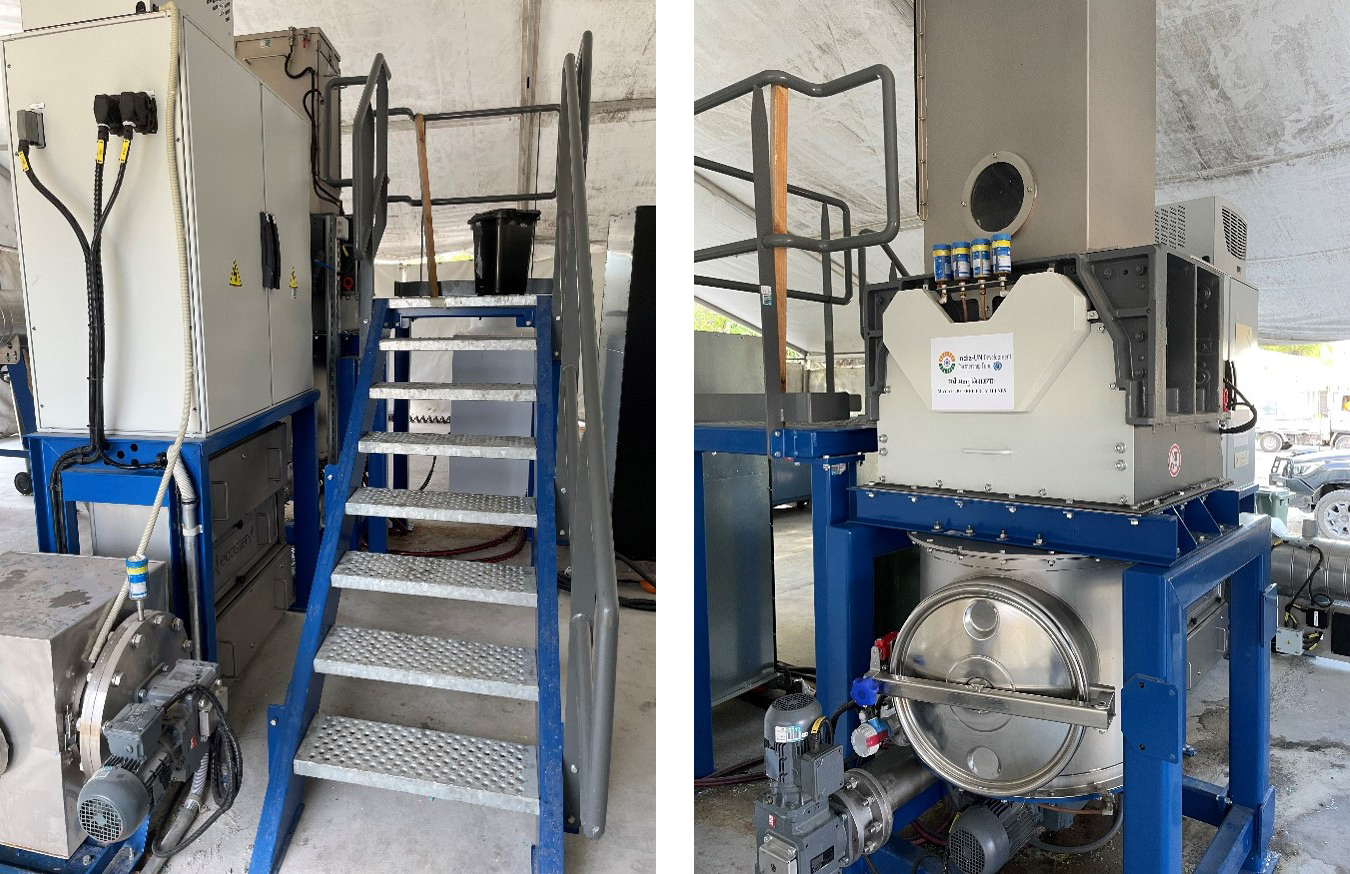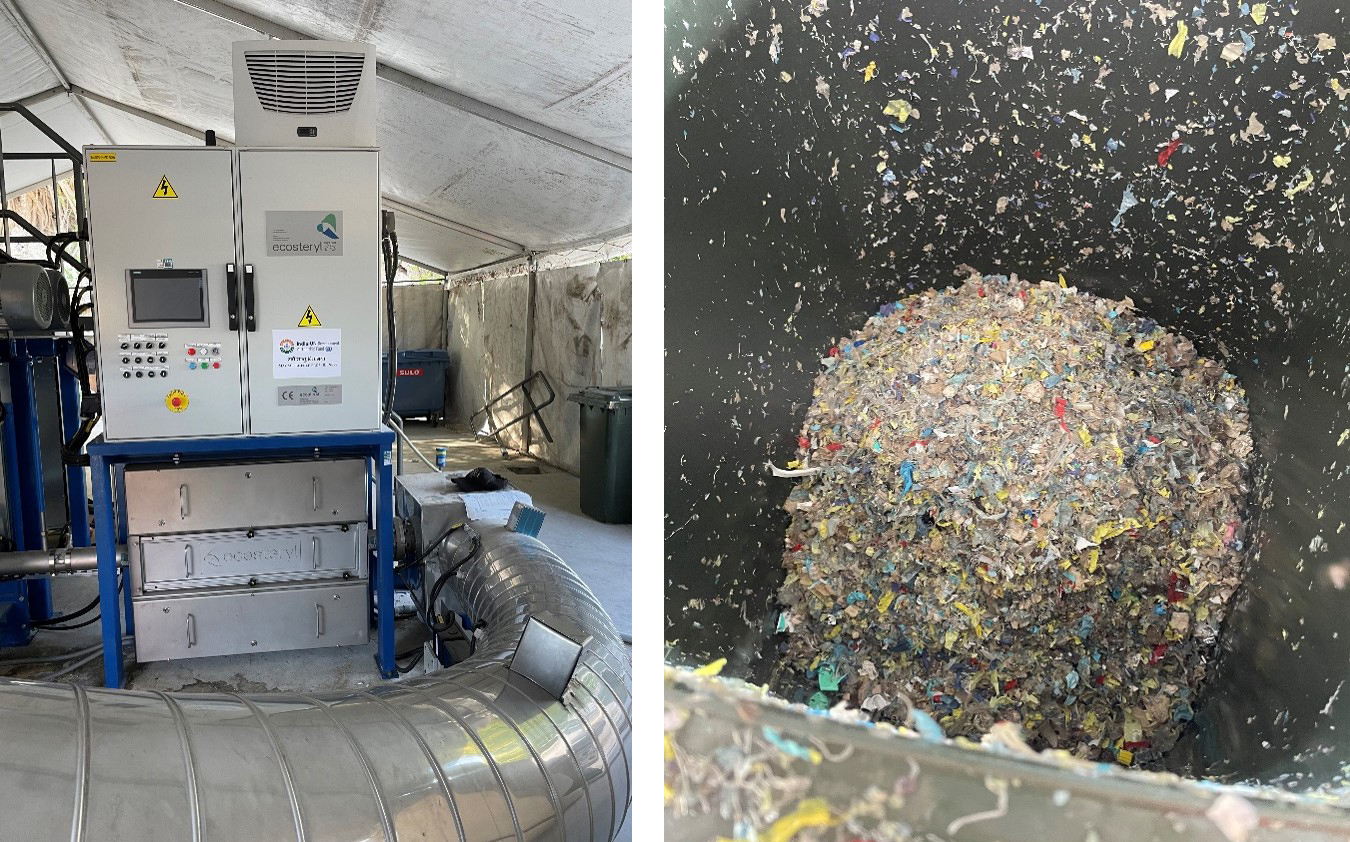Nauru has built upon its COVID-19 response to increase the environmental sustainability of its healthcare system through the installation of state-of-the-art clinical waste management technology.
Facing the twin health crises of COVID-19 and environmental degradation, the Ministry of Health of Nauru saw and seized the opportunity to do something that would help the country tackle both at the same time. This cutting-edge non-burning technology is capable of decontaminating all kinds of medical waste by electricity alone. In so doing, it keeps health workers and neighbouring communities safe from infectious diseases such as COVID-19, as well as from pollution. The technology was introduced under a collaborative project led by the Ministry of Health with support from the World Health Organization (WHO) and the United Nations Development Programme and received funding from the India-UN Development Fund managed by the United Nations Office for South-South Cooperation.
Managing COVID-19 worldwide has created a large amount of clinical and hospital waste which poses a threat to lives, flora, fauna, and the environment. According to WHO, about 85% of the total amount of waste generated by health care activities is general, non-hazardous waste with the remaining 15% considered hazardous, infectious, toxic, or radioactive. Hazardous waste that is not managed properly presents a risk to hospital patients, health care personnel, and the general public.
This new equipment shreds medical waste such as syringes, then decontaminates it thanks to the action of microwaves and electrical resistors. The resulting dry by-product is then free from disease-causing pathogens (such as viruses and bacteria) and 100% recyclable. As the system does not generate any polluting emissions (water, fumes, chemicals, or gases), health risks are avoided. The whole process is environmentally friendly, easy to maintain, and overseen by local staff who have been specially trained in the process. It is now being used to dispose of all COVID-19 infected waste in a safe way. This replaces the previous system which involved burning used medical supplies at high temperatures, resulting in the release of smoke and fumes.
The lessons drawn from the successful use of this non-burning medical waste technology will likely spur wider use, as countries strive to put in place sustainable systems to mitigate the health consequences of climate change and future pandemics.
"Nauru is showing the way out of the COVID pandemic towards a greener, more equitable future for all across the Pacific with the installation of this new equipment. The country has been brave enough to step up and try something new which could potentially benefit many of its fellow Pacific island nations. At WHO, we’re thankful to the Ministry of Health of Nauru for working together with us on this project, and we will of course continue to stand behind the Ministry as it works to combat COVID-19 and the health impacts of a changing climate and environment,” said Lauren O’Connor, Officer in Charge at WHO South Pacific.


Completed installation of the new environmentally-friendly medical waste disposal equipment in Nauru.
©WHO / Dr Subhash Yadav




